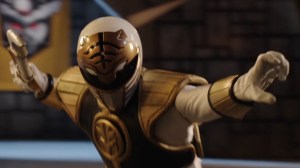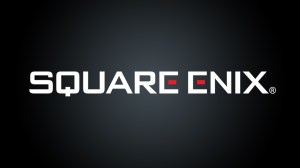American Carnage is a disturbing crime story that examines homegrown extremism, racism, and police brutality in a captivating opening chapter.
Videos by ComicBook.com
The new Vertigo series, written by Bryan Hill and illustrated by Leandro Fernandez, leans into many of the issues that divide American society today, ranging from distrust in the government to police brutality and just about everything between the two. While the comic is a gritty crime drama, its trappings and background are all pulled straight from the headlines, much in the same way that Law & Order has used to great effect.
The series centers around a disgraced FBI agent Rick Wright who is prodded by ex-colleague Shelia Curry to infiltrate the organization of a philanthropist named Wynn Morgan. Morgan became popular with the anti-government “MAGA” crowd and may have ties to an extremist that killed another FBI agent. Although the FBI doesn’t want to investigate Morgan further further, Curry thinks that something more sinister is going on.
While some readers might be put off by American Carnage unflinching integration of some very relevant and newsworthy topics, Hill does a fine job weaving it all into the story in an organic-feeling way. Of course, when the central topic of your comic is white extremism, it’s not too hard to tie in things like racism and the exploitation of anti-government sentiment in a natural sort of way.
Hill uses many of the same arguments that you often see online or on cable news when discussing white extremism, especially when it comes to “legitimate” politicians and public figures who cater to their viewpoints for votes. Morgan isn’t presented as a caricature with over-the-top views, instead his words and opinions are remarkably similar to many of the alt-right talking heads that flood social media, the Internet, and cable news.

The comic does suffer from a few tired gritty crime tropes, though. Wright is introduced snorting coke right after a dalliance with a prostitute, which seems to be the standard retirement package for disgraced cops or federal agents. Some of the dialogue is a bit off, too, especially when Wright and Curry interact. There’s also some disturbing imagery and words, particularly the use of a racial slur and the depiction of a brutal lynching. None of this is done as a cheap shock tactic, but the inclusion of that language and imagery might be enough to turn readers away from the book.
Leandro Fernandez’s art is a bit above the current wave of Vertigo artists, who seem to be chosen for utility rather than their ability to provide stunning artwork. Fernandez has a knack for depicting faces, and there’s a few subtle moments in American Carnage that really work because of how he depicts expressions. Although the art looks a bit rushed in a few spots, I appreciate how much Fernandez adds just with his ability to show disgust or sorrow without resorting to caricature.
I’m a big fan of Dean White’s coloring in American Carnage. A lot of these “gritty” non-superhero comics are colored using 50 shades of sepia, and I appreciate that White doesn’t stick with one palette during the entire comic. It’s OK to not filter every panel with a shade of brown, and White really helps Fernandez’s art pop and stand out.
Ultimately, American Carnage broaches an important topic with the sort of seriousness that it deserves. Too often are white extremist portrayed as sad sacks or over the top in comics instead of the very real and pervasive threat that they are. In American Carnage, we not only see the violent terrorist side of this movement, but also the side that masquerades as legitimate in the mainstream. And sure, this sort of story has been shown before in comics, but almost always with the caveat that the movement is led by cryofrozen Nazis or Hitler clones and not actual people that seem nice on the surface and stir up hatred and violence while keeping their hands clean.
American Carnage is a strong start to a story that feels very important, especially in today’s world. It feels authentic and comes at a time where we need a hard look at how these movements start.
Published by DC Comics
On November 21, 2018
Written by Bryan Hill
Drawn by Leandro Fernandez
Colored by Dean White
Lettered by Pat Brosseau







